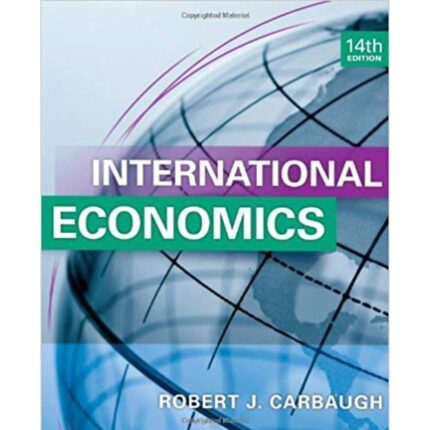CHAPTER 11—FOREIGN EXCHANGE
MULTIPLE CHOICE
1. Assume you are an American exporter and expect to receive 50 pounds sterling at the end of 60 days. You can remove the risk of loss due to a devaluation of the pound sterling by:
a. Selling sterling in the forward market for 60-day delivery
b. Buying sterling now and selling it at the end of 60 days
c. Selling the dollar equivalent in the forward market for 60-day delivery
d. Keeping the sterling in Britain after it is delivered to you
ANS: A PTS: 1 DIF: Moderate
NAT: BPROG: Reflective Thinking TOP: Forward and Futures Markets
KEY: BLOOM’S: Comprehension
2. Which of the following tends to cause the U.S. dollar to appreciate in value?
a. An increase in U.S. prices above foreign prices
b. Rapid economic growth in foreign countries
c. A fall in U.S. interest rates below foreign levels
d. An increase in the level of U.S. income
ANS: B PTS: 1 DIF: Moderate
NAT: BPROG: Reflective Thinking TOP: Foreign-Exchange Market
KEY: BLOOM’S: Comprehension
3. Concerning the covering of exchange market risks–assuming that a depreciation of the domestic currency is anticipated, one can say that there is an incentive for:
a. Exporters to rush to cover their future needs
b. Importers to rush to cover their future needs
c. Both exporters and importers to rush to cover their future needs
d. Neither exporters nor importers to rush to cover their future needs
ANS: B PTS: 1 DIF: Challenging
NAT: BPROG: Reflective Thinking TOP: Types of Foreign-Exchange Transactions
KEY: BLOOM’S: Comprehension
4. When short-term interest rates become lower in Tokyo than in New York, interest arbitrage operations will most likely result in a(n):
a. Increase in the spot price of the yen
b. Increase in the forward price of the dollar
c. Sale of dollars in the forward market
d. Purchase of yen in the spot market
ANS: C PTS: 1 DIF: Moderate
NAT: BPROG: Reflective Thinking TOP: Types of Foreign-Exchange Transactions
KEY: BLOOM’S: Comprehension
5. An appreciation in the value of the U.S. dollar against the British pound would tend to:
a. Discourage the British from buying American goods
b. Discourage Americans from buying British goods
c. Increase the number of dollars that could be bought with a pound
d. Discourage U.S. tourists from traveling to Britain
ANS: A PTS: 1 DIF: Moderate
NAT: BPROG: Reflective Thinking TOP: Foreign-Exchange Market
KEY: BLOOM’S: Comprehension
6. Concerning the foreign exchange market, one can best say that:
a. There is a spot market for virtually every currency in the world
b. The market is highly centralized like the stock exchange
c. Most foreign exchange payments are made with bank notes
d. The values of the forward and spot rates are always in agreement
ANS: A PTS: 1 DIF: Moderate
NAT: BPROG: Reflective Thinking TOP: Foreign-Exchange Market
KEY: BLOOM’S: Comprehension
7. Suppose researchers discover that Swiss beer causes cancer when given in large amounts to British mice. This finding would likely result in a (an):
a. Increase in the demand for Swiss francs
b. Decrease in the demand for Swiss francs
c. Increase in the supply of Swiss francs
d. Decrease in the supply of Swiss francs
ANS: B PTS: 1 DIF: Moderate
NAT: BPROG: Reflective Thinking TOP: Exchange-Rate Determination
KEY: BLOOM’S: Comprehension
8. Suppose that real incomes increase more rapidly in the United States than in Mexico. In the United States, this situation would likely result in a (an):
a. Increase in the demand for pesos
b. Decrease in the demand for pesos
c. Increase in the supply of pesos
d. Decrease in the supply of pesos
ANS: A PTS: 1 DIF: Moderate
NAT: BPROG: Reflective Thinking TOP: Exchange-Rate Determination
KEY: BLOOM’S: Comprehension
9. A depreciation of the dollar refers to:
a. A fall in the dollar price of foreign currency
b. An increase in the dollar price of foreign currency
c. A loss of foreign-exchange reserves for the U.S.
d. An intervention in the international money market
ANS: B PTS: 1 DIF: Moderate
NAT: BPROG: Reflective Thinking TOP: Exchange-Rate Determination
KEY: BLOOM’S: Comprehension
10. If Canadian speculators believed the Swiss franc was going to appreciate against the U.S. dollar, they would:
a. Purchase Canadian dollars
b. Purchase U.S. dollars
c. Purchase Swiss francs
d. Sell Swiss francs
ANS: C PTS: 1 DIF: Challenging
NAT: BPROG: Reflective Thinking TOP: Forward and Futures Markets
KEY: BLOOM’S: Comprehension













Reviews
There are no reviews yet.